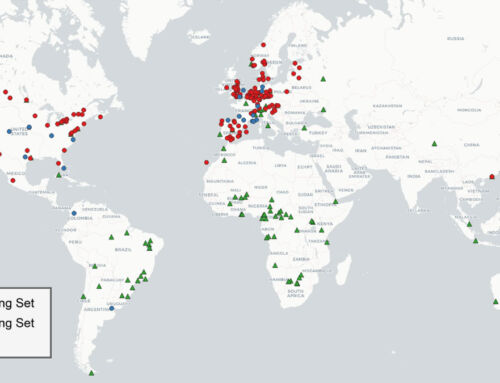The growth and democratization of tourism worldwide have led to a proliferation of the types of trips tourists take. Today, it’s possible to classify them according to geographic location, duration, the tourist’s role, the nature of the experience, the travellers’ motivations, the purpose of the trip, and more. However, we’ll leave a comprehensive classification of tourism types for another study, which we promise to share with you. Instead, here we’ll focus on leisure tourism, which, according to Statista—one of our sources—”refers to trips taken for relaxation and pleasure.”
Leisure tourism has become a massive activity responsible for an economic tsunami. From a Caribbean cruise or a trip to a theme park or water park, to a weekend rural getaway, leisure tourism represents, according to Statista again, “approximately 80 percent of global travel and tourism expenditure.” But that’s not all; this type of tourism is also headed for historic growth. According to a report, in this case by the Boston Consulting Group (BCG), compared to $5 trillion in 2024 (or €4.2 trillion, three times the GDP of a country like Spain that same year), “leisure travel will present a $15 trillion opportunity for airlines, hotels, and other travel industry stakeholders in 2040“—or almost the GDP of the European Union’s Eurozone in 2024.
It’s important to clarify that BCG’s forecast encompasses the leisure travel sector from a broad perspective—airlines, hotels, and others. In contrast, Leisure and Tour World magazine projects a $2.3 trillion (€2 trillion) market by 2032, likely referring only to direct revenue from package tours, tour operators, and accommodation services, in a more specific segmentation within the leisure market. This disparity is, in itself, the best testament to the complexity and multiple layers of a sector as dynamic as it is difficult to encapsulate in a single statistic. What both projections confirm, from different perspectives, is the unequivocally upward trend of an industry that is expanding rapidly.
This leisure tsunami is rooted, among other things, in two fundamental social transformations: on the one hand, the emergence of a burgeoning middle class in emerging markets with an insatiable appetite for exploring the world—does anyone disagree?—; on the other, a profound cultural shift in the scale of values, a “growing emphasis on experiences, rather than things—people are increasingly choosing to spend their money on creating good memories.” Indeed, in this kind of experience economy, a memory is worth more than a material object.
And yet, the expansion of leisure tourism is not solely based on long transcontinental or international flights. On the contrary, “domestic trips compose the bulk of leisure travel, especially in emerging markets.” Local and regional travellers are the true driving force behind this growth, a crucial fact for destinations seeking to capture this potential. However, among international travellers, there is a growing presence of tourists from China, India, and Saudi Arabia. Moreover, these travellers tend to be younger and, of course, travel hyper-connected. Regarding destinations, the “classics”—beaches, nature, and cities—remain their allure.

Breaking down leisure travellers by demographic groups reveals a universe of motivations. According to BCG, Millennials and Generation Z, socially conscious digital natives, are the most influential globally. But they are not the only ones: “multigenerational and blended travel is on the rise because of changing lifestyles, flexible work setups, and aging populations.” At the same time, solo travel has ceased to be a niche market and has become a mainstream trend.
These new travellers have very clear expectations: they demand impeccable digital service, from mobile booking to the availability of “super apps,” and they seek extreme personalization of their experiences with the help of artificial intelligence (AI). An excellent example of this desire is the idea that destinations must respect the culture, customs, and dietary restrictions of travellers, as in the case of vegans in culinary tourism. Furthermore, these new tourists trust recommendations from their community more than traditional advertising.
Another crucial issue: the way we plan trips is undergoing its greatest transformation since the advent of the internet. Travellers no longer simply search for a hotel, but rather engage in “deeper, more interactive conversations with LLM-based search agents such as ChatGPT and Gemini;.” This shift is so profound that it “may pose an existential threat to travel companies.” Indeed, AI-powered search platforms often bypass “traditional aggregators” and redirect users to the most relevant offers.
However, regarding this particular point, BCG published the results of a 2024 survey which found that global travellers generally consider “human interaction to be especially important,” despite using chatbots to decide on their trips.
Sources: Boston Consulting Group, Statista, Travel and Tour World.






